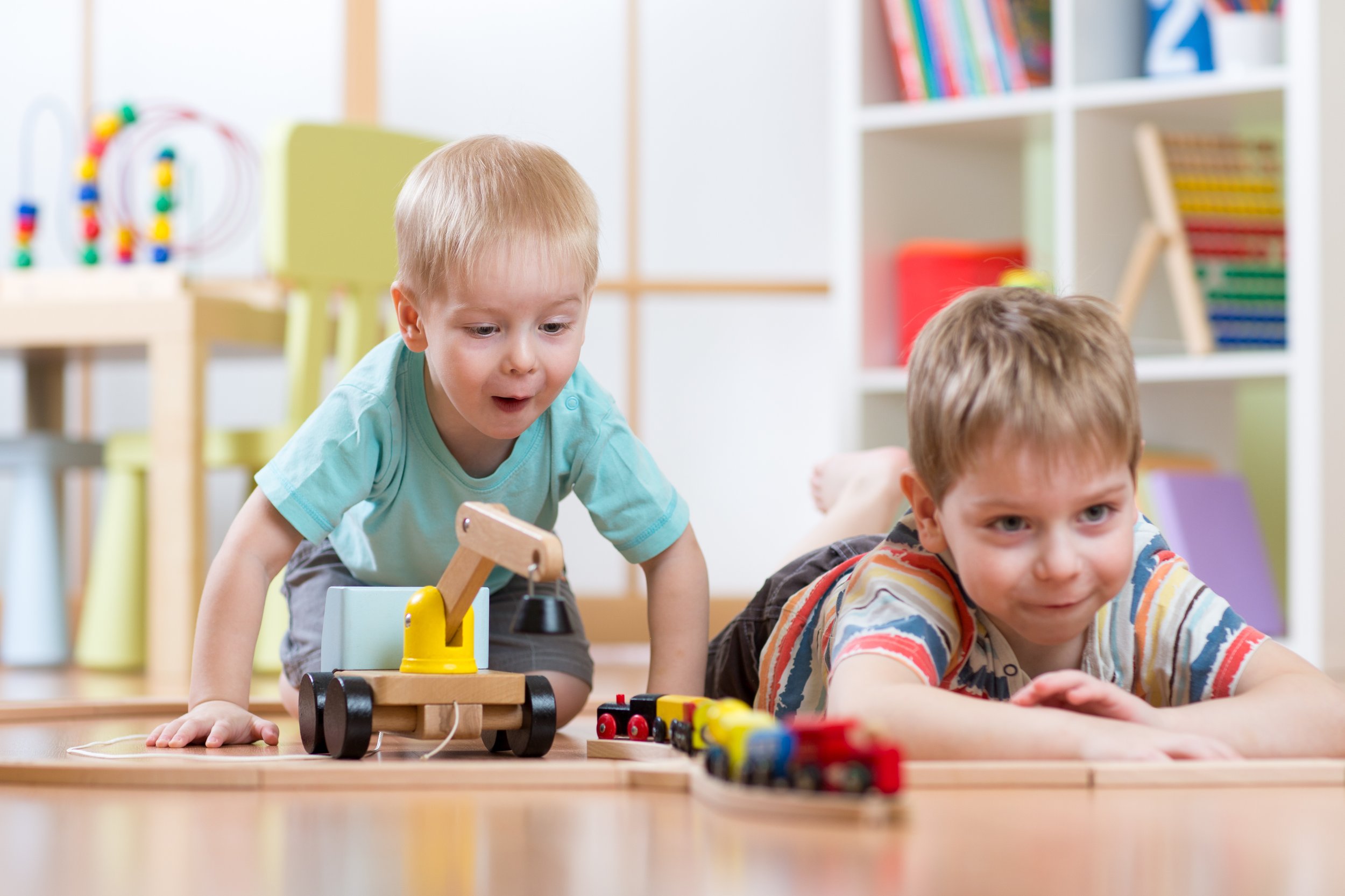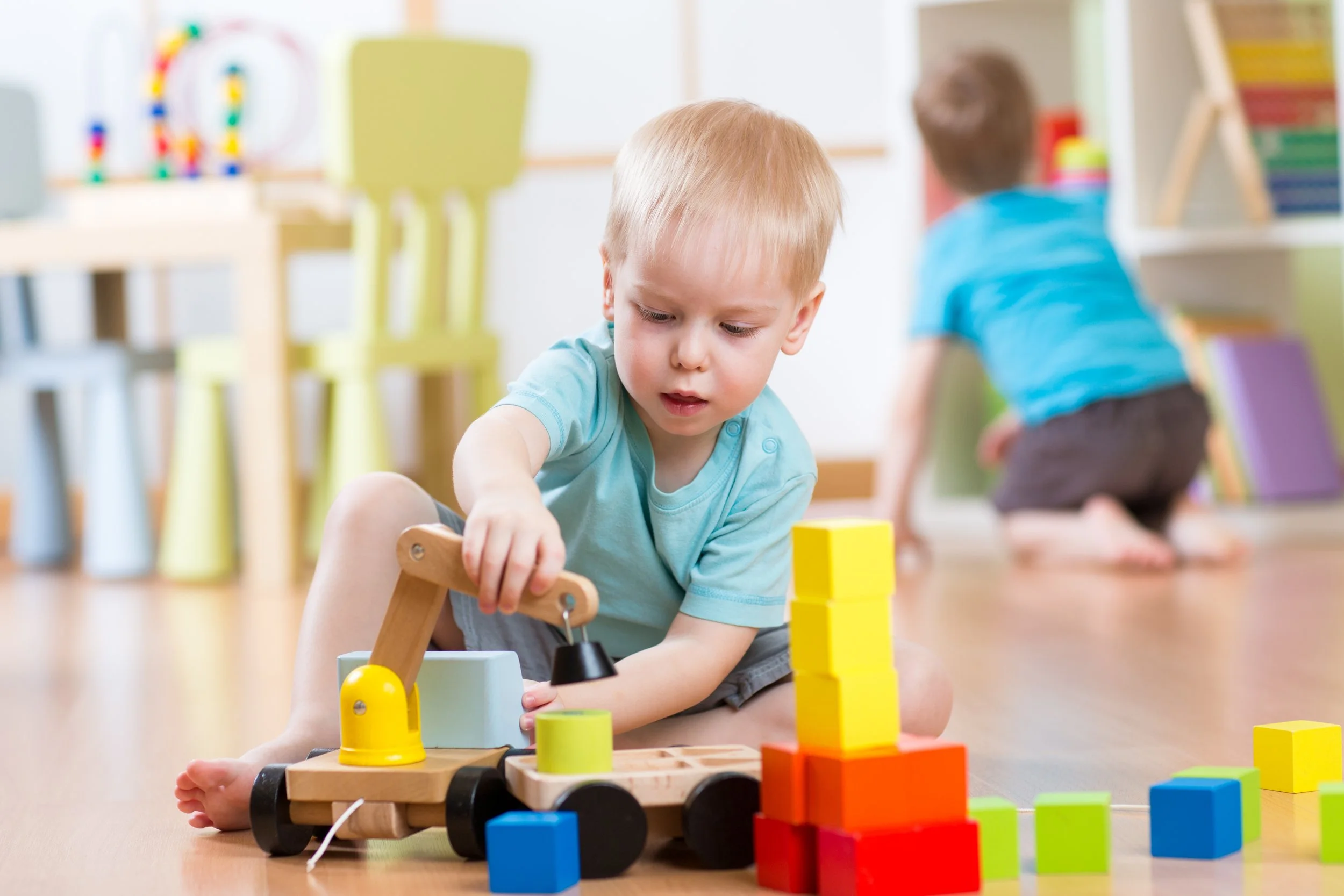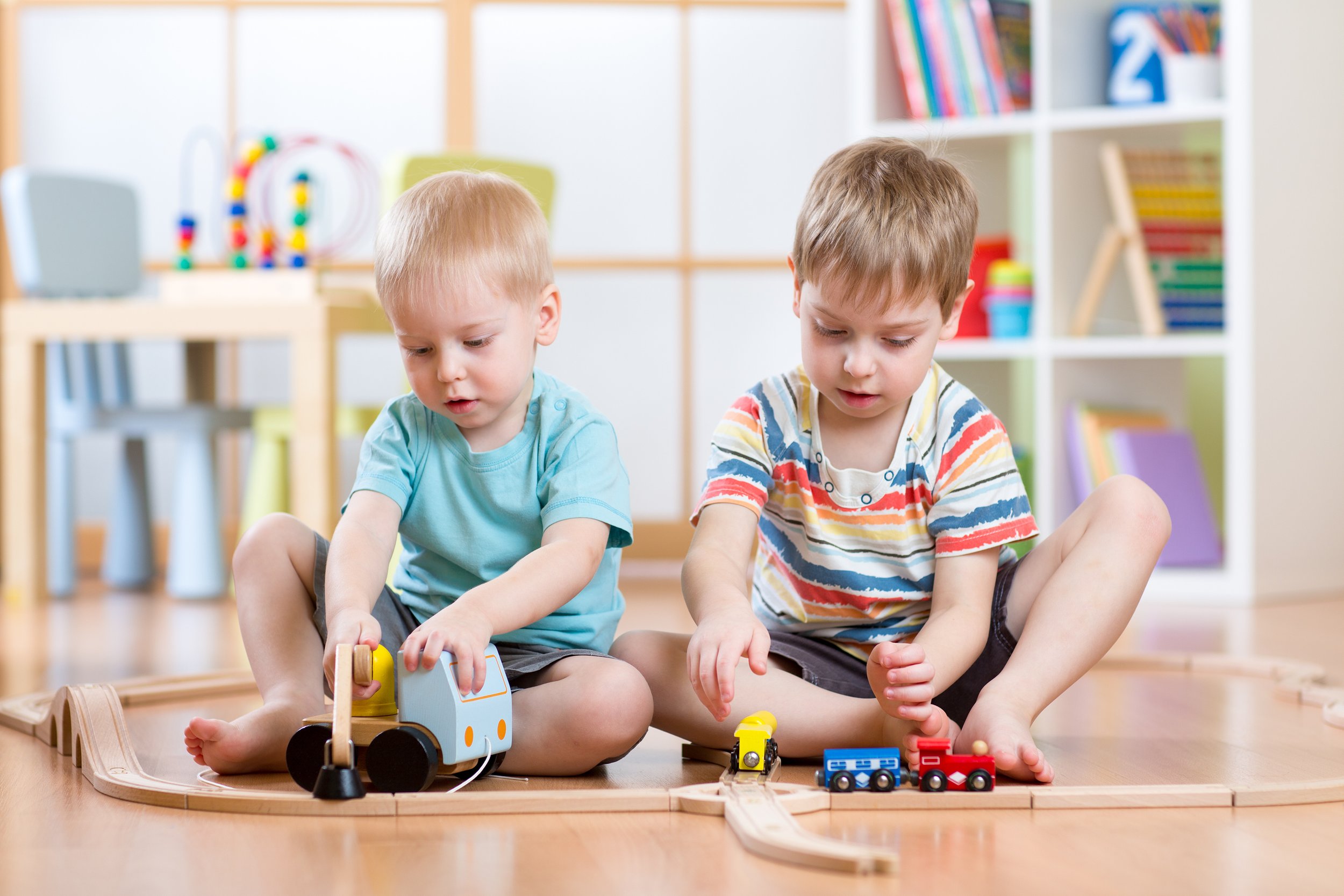2 Year Old Milestones: Speech and Language
Developmental Milestones for 2 Year Old’s Speech and Language
How many words should 24 month olds say? And what can 2 year olds understand?
2 Year Old Milestones For Receptive and Expressive Language
How much should a 2 year old talk?
At 24 months old, the number of words speech therapists expect to hear continues to increase substantially! And 2 year olds seem to be talking all the time!
2 year olds say between 100 to 500 words roughly.
As the number of words 2 year olds say increases, they will begin to say more verbs (action words) and adjectives (descriptive words). This is important because it sets the stage for them to start talking in short sentences.
If you are looking to support your toddler in expanding the number of the words your toddler can say, check out one of our free lessons (links below) which will teach you the most powerful things you can do as their parents to encourage them to talk.
Links to lessons:
How do 2 year olds tell you what they want or need?
At 24 months children will most often tell you what they need by saying a word or phrase. By 2 years old, toddlers begin to use more words to communicate than gestures.
That’s because their vocabulary has grown to have enough words that they can tell you specifically what they want and need.
Even though they are using words to ask for things most of the time, 24 month olds may use gestures, sounds or words. Even though toddler’s language skills are developing rapidly, 2 year olds will continue to use non-verbal forms of communication like gestures (pointing for example) and facial expressions. It’s expected that toddlers continue using all the communication strategies they have learned up until this point. The two most important things to look for is that 24 month olds are using a combination of communication strategies (including each of the following: gestures, sounds, and words) and that they are using words and phrases more frequently as they continue to develop their language skills.
Around the time that toddler’s can say 100+ words, they will begin putting words together to ask for things.
24 month olds will say 2 or a few words together, like “More juice” and “Mama look me!” to express their wants and needs. The ability to put words together when talking will dramatically increase the number of messages that toddlers can communicate. This contributes to the transition from communicating predominately with gestures to mostly with words.
Fun Fact: Toddlers will usually learn the words for their favorite things first. These words are often heard ahead of others because 2 year olds are more motivated to try to say them.
How many words should a 2 year old understand?
In speech therapy, the number of words a 2 year old knows is more words than they can say. It will be hard to actually calculate the number of words they know, or understand, because the number is so large.
If you were to calculate the number of words 2 year olds know, you would count well over 1,000 words.
What parents are able to observe is an increase in the number of directions 2 year olds can follow and their ability to begin to answer different questions.
Toddlers at this age are able to follow directions with one or two actions. For example, “Close the refrigerator” and “Get your cup and put it on the table.” If they aren’t able to follow directions the first time, they will learn to follow them with a little bit of practice.
Similarly, toddlers will begin to answer “wh” questions when they are 2 years old. Questions like “What do you have?” “What are you doing?” and “Who is in the kitchen?” will become increasingly easier to answer.
2 Year Old Speech Milestones - How toddler’s develop pronunciation skills
Whereas language has to do with how many words your toddler can say, speech language pathologists use the term “speech” to refer to how clearly toddlers say words.
When it comes to 2 year old speech milestones, the most important milestone has to do with speech intelligibility, or how clearly your child is speaking. At 24 months old you want to be sure that you are understanding at least half of the things your little one says. Speaking clearly (at least 50% of the time) is an indicator that your child’s speech skills are developing on track. As your toddler approaches their 3rd birthday they will become even easier to understand.
To learn more about speech intelligibility and 2 year old speech milestones continue reading here.
What if my 2 year old isn’t meeting their speech and language milestones?
As a parent, you always want the best for your child. And it can be very challenging and worrisome if you feel like your child’s development might be falling behind.
If you feel that your child has not met some of their developmental milestones you might expect for their age, it's possible that they could benefit from the support of a speech therapist. Learn more about speech therapy for toddlers here.
If you have concerns of speech delay, you’ll definitely want to check out this post which teaches you about 3 things you can do today to support speech delay in toddlers.
Speech and Language Milestones for 2 Year Olds
Expression Skills (Expressive Language)
How does your toddler "tell" you things?
▢ Says more words than you can count; Seems to have a word for just about everything
▢ Says a variety of words: nouns, verbs, adjectives, adverbs
▢ Puts 2 words together
▢ Uses words to express their wants, needs, ideas, and feelings
▢ Repeats back 2-3+ word phrases regularly
Understanding Skills (Receptive Language)
What words does your toddler know?
▢ Answers some “wh” questions: who, what
▢ Follows directions that have 1 action: give me the cup, close the door, wash your hands
▢ Listens to my directions in safety situations: No! Stop!
▢ Has back and forth "conversations" even if you can't understand what they are saying
▢ Continues to learn the meaning of new words when introduced to new things
Speech Skills
Which sounds should you be listening for?
▢ Pronounces most Consonant Sounds: P, B, T, D, K, G, M, N, H, W, F
▢ Vowel Sounds: Is able to pronounce all the vowel sounds
▢ You can understand 50-75% of what your child says
▢ May leave consonant sounds off the ends of words
▢ Developmental Stuttering may occur at this age - read more here
Social Communication Skills
How does your little one play and interact with others?
▢ Enjoys having conversations with familiar children and adults
▢ Pays attention to an activity they like for several minutes
▢ Anticipates what is going to happen next during your daily routines
▢ Understands other people's tone of voice
▢ Knows how to get your attention or ask for help when needed
Download the checklist now ↓
Support The 2 Year Old Milestones at Home
Grow Your Toddler's Language Playing Hide and Seek
Play “hide and go seek” with your child’s toys! This activity is a great opportunity to practice answering questions with your child in a way that they don’t feel on the spot.
Hide your first toy, let’s say you hide a car under the couch cushion and your child watches you hide it. Once you have “hidden” the object, ask “Where’s the car?” while searching together.
You ask, “Is it under the blanket?” and respond “No!” Then you look under the couch cushion; “Is it under the cushion?” and respond “Yes!”
Or maybe they don’t answer you, but they are still having fun! Fun is the most important component of at home practice!
If your child doesn’t answer at first, give them a few seconds to think. It might take several seconds to come up with their answers.
And if after waiting they still don’t respond, you can answer for them! No need to ask them to repeat the answer or say it themselves. Remember, listening to your example is an important step in the learning process.
Continue hiding and finding objects with your child, and give them the opportunity to be the one to hide their toys. As we said, two year olds like to be in control!
As you play together, look for your toddler to:
▢ Begin to answer some simple “wh” questions - Where is it? What are we looking for?
▢ Begin to ask some of the same questions you’ve repeated during your play
Here’s a list of other common questions asked by parents of 2 year olds:
-
At 2 years old children are learning to walk, talk, run, climb, jump, and eat (without as big of a mess!). The focus from these early developmental skills towards academic skills usually occurs after 3 years old (preschool age).
-
A 2 year old should have a word to ask for most things that they want or need. As a general rule of thumb, speech therapists will listen for 2 year olds to say at least 100 words.
-
3 Common signs of a speech delay at 2 years old are:
your child is not talking yet
your child hasn’t started putting words together
your child has a hard time understanding
-
If your 2 year old isn’t talking a speech and language evaluation is recommended in order to support your child in growing their communication skills. Read more about how to find a speech therapist near you here.
-
A 2 year old should be talking clearly at least half of the time.
-
As a general rule of thumb, parents should listen for their 2 year old to say at least 100 different words that they can understand. It’s okay if other people who spend time with your child can understand less, in fact that would be expected.
Should a 2 year old be talking clearly?
Listen for 24 month olds to speak clearly 50-75% of the time. By the time children are 3 years old, speech therapists listen for them to speak clearly 75-100% of the time.
How many words should a 2 year old say clearly?
As a general rule of thumb, parents should listen for their 2 year old to say at least 100 different words that they can understand. It’s okay if other people who spend time with your child can understand less, in fact that would be expected.
Should I be worried if my 2 year old isn’t talking?
If your 2 year old isn’t talking a speech and language evaluation is recommended in order to support your child in growing their communication skills. Read more about how to find a speech therapist near you here.
Written By: Stephanie Keffer, MS CCC-SLP
© 2020-2025. Stephanie Keffer Hatleli, MS CCC-SLP. All Rights ReservedThe content offered on ToddlerTalk.com is for informational purposes only. Toddler Talk is not engaged in rendering professional advice, whether medical or otherwise, to individual users or their children or families. No content on this site, regardless of date, should ever be used as a substitute for direct medical advice from your doctor, speech language pathologist, or other health professional. By accessing the content on ToddlerTalk.com, you acknowledge and agree that you are accepting the responsibility for your child’s health and well-being. In return for providing you with information related to home speech and language practice, you waive any claims that you or your child may have as a result of utilizing the content on ToddlerTalk.com.





